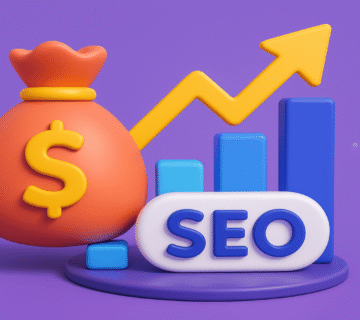Types of e-marketing
Search Engine Marketing (SEM)
Search Engine Marketing (SEM) is one of the vital strategies that companies rely on to increase their visibility in paid search results. This field involves using paid advertisements to drive traffic to business websites, thereby contributing to enhanced brand awareness and increased sales. One of the most prominent types of advertising campaigns used in SEM is Pay-Per-Click (PPC) campaigns, where advertisers pay a certain amount for each click on their ads.
To execute SEM campaigns effectively, companies must carefully select keywords, as these keywords are the starting point for success. Keywords should be closely related to the advertiser’s products or services to increase the likelihood of attracting targeted users. In addition, performance analysis tools such as Google Ads and SEMrush can be used to monitor campaign performance and identify areas for improvement. These tools help companies understand how audiences interact with their ads, allowing them to adjust strategies as needed.
It is also crucial to track the Return on Investment (ROI) of SEM campaigns, as this provides valuable insights into the effectiveness of ad spending. By analyzing data, marketers can determine which campaigns perform well and which need adjustments. In the ever-evolving world of digital marketing, SEM represents a powerful tool for reaching new audiences and increasing companies’ competitiveness in the market.

Social Media Marketing
In the age of technology and digitization, social media has become one of the essential tools companies can use to strengthen their brand. Success in marketing through these platforms requires an integrated strategy that includes several key elements.
One of the fundamental aspects is creating engaging and diverse content that aligns with the interests of the target audience. Content should cater to various societal groups by using images, videos, blogs, and live streaming. Additionally, content must be regularly updated and contain valuable information that captures audience interest, contributing to increased interactions, likes, and shares.
Effective engagement with the audience is a key factor in achieving success. Companies should interact with their followers by responding to comments and answering questions. This not only helps build strong relationships but also shows that the company cares about its customers’ opinions. Competitions and surveys can increase interaction and provide an opportunity to receive direct feedback on products and services.
Moreover, social media offers options for paid advertising, which is an effective way to reach a wider audience. Companies can precisely define the target group, ensuring that ads reach those most likely to be interested in the products or services offered. Performance analysis serves as an important measurement tool, helping companies evaluate the success of their ad campaigns by analyzing engagement and results.
In conclusion, social media is a powerful tool in digital marketing, allowing companies to enhance their brand in innovative and impactful ways. By following effective strategies, companies can achieve tangible results and reach their marketing goals.
Content Marketing
Content marketing is a marketing strategy that focuses on creating and distributing valuable and impactful content to attract the target audience and build trust with them. This approach goes beyond traditional marketing methods that focus on direct promotion of products or services. Instead, it aims to provide the audience with useful and inspiring information that helps them make purchasing decisions.
Possible content formats include articles, blogs, videos, and infographics. Content must be high-quality, offer real solutions to the audience’s problems, and reflect the brand’s vision. It is important for the content to be diverse, suitable for different display platforms such as websites, social media, or even email. Additionally, search engine optimization (SEO) should be considered when creating content, as it helps increase visibility and click-through rates.
It is also essential to promote content through effective promotional methods, including social media, advertising campaigns, and collaboration with bloggers and influencers. This can help expand reach and increase engagement with the content. To ensure the effectiveness of marketing campaigns, content performance should be measured by analyzing data such as website traffic, user engagement, and visitor-to-customer conversions. Analytical tools can be used to monitor the performance of content marketing and measure its impact on marketing goals.

Email Marketing
Email marketing is considered an effective tool in the world of digital marketing, allowing marketers to communicate directly with current and potential customers. For a successful start, it is essential to build a strong email list made up of relevant contacts who have shown interest in the promoted products or services. This usually requires offering valuable content or special incentives, such as free downloads or exclusive offers, to encourage visitors to subscribe to the list.
Writing compelling emails plays a critical role in achieving email marketing goals. Subject lines must be attention-grabbing, while the content of the emails should be clear and concise. The aim is to understand the needs of the target audience and provide a suitable solution, which helps improve open and response rates. By creating personalized content, interaction can be enhanced and conversion opportunities increased.
Audience segmentation is an important strategy in email marketing, allowing for targeted campaigns that focus on different interests and preferences. This personalization enables more relevant messages, which improves overall campaign performance. Additionally, campaigns should be regularly monitored and analyzed to understand the effectiveness of the methods used. By measuring open rates, click-through rates, and responses, continuous improvements can be made and return on investment increased








No comment